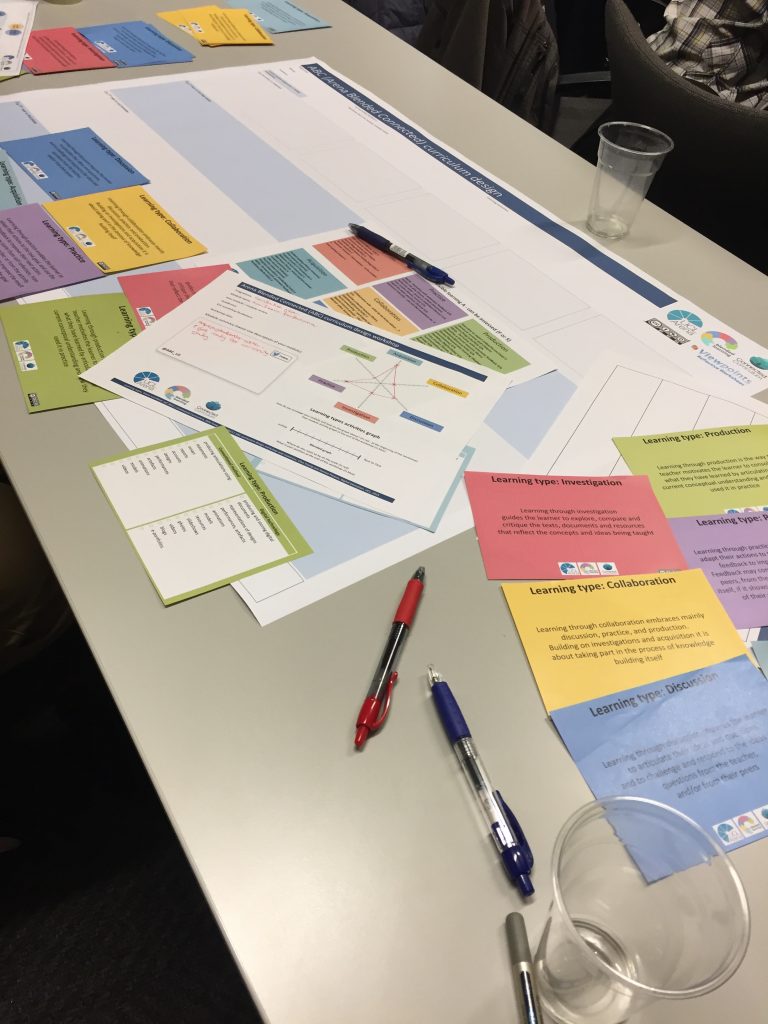Heading to London for the ABC mini event on Friday 9 February at UCL, I was a tiny bit apprehensive. This curriculum development tool was something I have used, in various forms, but without ever actually seeing how it should be ‘properly’ done, or ever receiving any training from Clive and Natasha, who came up with it. What I soon found was that our renegade use of the tool wasn’t in fact that renegade.

The morning session, where I got to actually try to develop a course using the tool, was pretty reassuring. It turns out I had actually been running the sessions ‘properly’ after all, which I would say is testament to how straightforward and logical the tools are to use.
After being on the other side of the table during a session, I learned how enjoyable it is to make such visible progress in such a short time. I also realised how much you have to remember if you end up talking through a whole sequence of learning without noting down the detail (ie, before you ‘flip the cards’). By the time we came to adding detail, we all had to try and remember what we’d had in mind. This is definitely something I’ll bear in mind the next time I run a session.
As well as the hands on session, hearing about what others have been using the method for, and what they had learned from it, was inspiring. The main things that stuck in my mind were:
- How useful the method is as a review tool (as I had previously used it to design new courses). It helps people visualise and recognise all the great things they already do, before thinking about how they might want to develop their course for the future. The act of discussing it with others surfaces long held beliefs and assumptions which might no longer apply. When redesigning a course, unit or programme, I can see how helpful this might be.
- Secondly, this tool is really effective at a programme level. The evaluation of individual courses or units seems to take on a new dimension when done in a room with all the units and courses in the programme being evaluated at the same time. Without asking people to do this explicitly, connections between units can be spotted and developed, duplication can be discussed, and people involved across the whole programme can start to get a real sense of what the students’ experience of the whole programme actually is. A ‘ground-up’ programme development seems to happen, which is more holistic and sustainable than a ‘top-down’ directive.
For our purposes, this certainly seems like a useful tool for two big projects that the University of Bristol is tackling: programme level assessment, and embedding the Bristol Futures themes into the core curriculum. Being able to quickly map where things already happen, and then talk about it in an open and positive environment, could be a really engaging way to get these conversations started. Let’s see where learning our ABCs can get us…